“Love is a gypsy child, it has never, ever, known a law” … You certainly know this famous aria from Carmen, an opera by Bizet! However, this opera caused a scandal in its time and was almost forgotten.
What is the story behind Carmen? And how did this opera become so famous? A look back at the tumultuous history of one of the most famous operas.
Article produced in partnership with La Seine Musicale
Summary
An educational concert to decipher Bizet’s work live
To better understand what made Carmen such a success, La Seine Musicale invites you to a relaxed 1 hour and 15 minute concert on Saturday 19 March at 6pm, where you will learn to understand Bizet’s work, with excerpts.

The origin of Carmen: a short story by Prosper Mérimée
To write his show, Bizet was inspired by a short story written by Prosper de Mérimée in 1847. In this story, Carmen is a seductive Seville gypsy whose charm does not escape the brigadier Don José, who falls madly in love with her. But overwhelmed by the pain of his one-sided love, Don José ends up killing Carmen with a knife…
The birth of Bizet’s opera
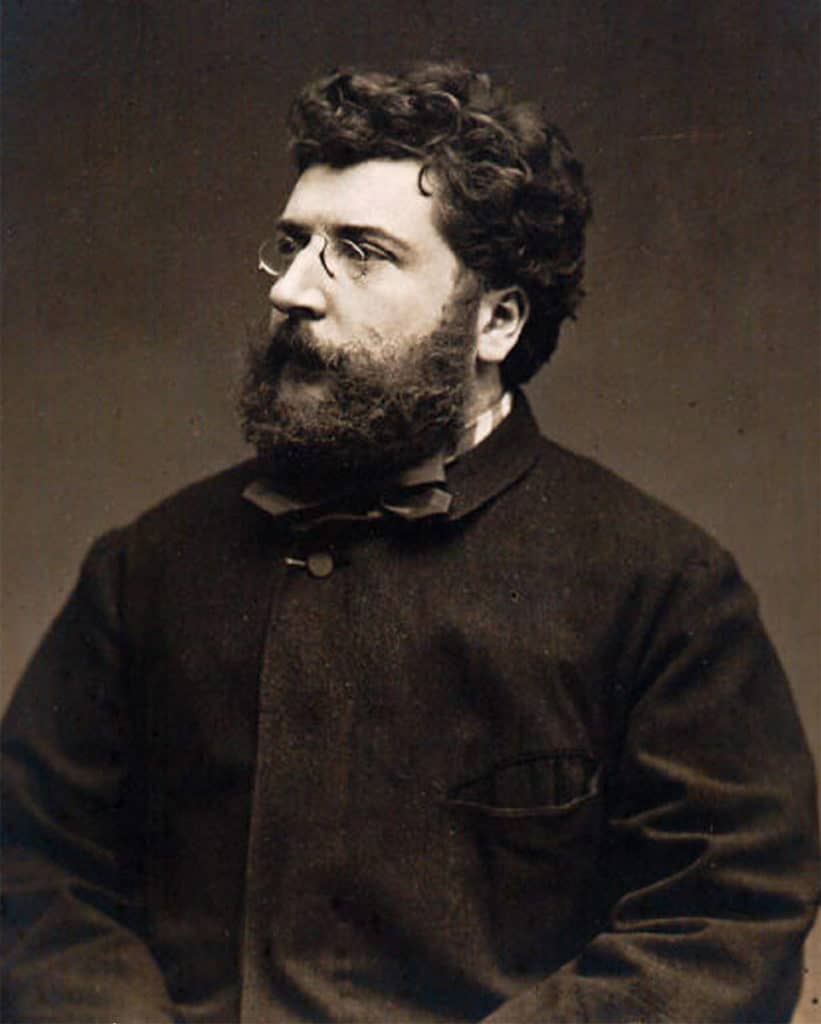
Captivated by orientalism, Georges Bizet (1838-1875) fell in love with Mérimée’s novella, which he wanted to transpose into an opera. He called on Henri Meilhac and Ludovic Halévy to write the libretto for this opera, which was to be performed at the Opéra-Comique, with which the composer was under contract. The challenge was great, as the story had to be toned down to make it less violent than in Mérimée’s novella.
A work born in pain
The creation of this adaptation is not easy: between the demands of the interpreter of the role of Carmen, musicians who struggle with the score and singers whose performance leaves something to be desired, the rehearsals are complicated to say the least. Moreover, the director of the Opéra-Comique, who wanted “a small, easy, cheerful thing”, was exasperated by this play, which he considered too far removed from his aspirations.
Finally, the first performance took place on 3 March 1875 in the presence of a few personalities such as Dumas fils and Offenbach as well as numerous critics and journalists.
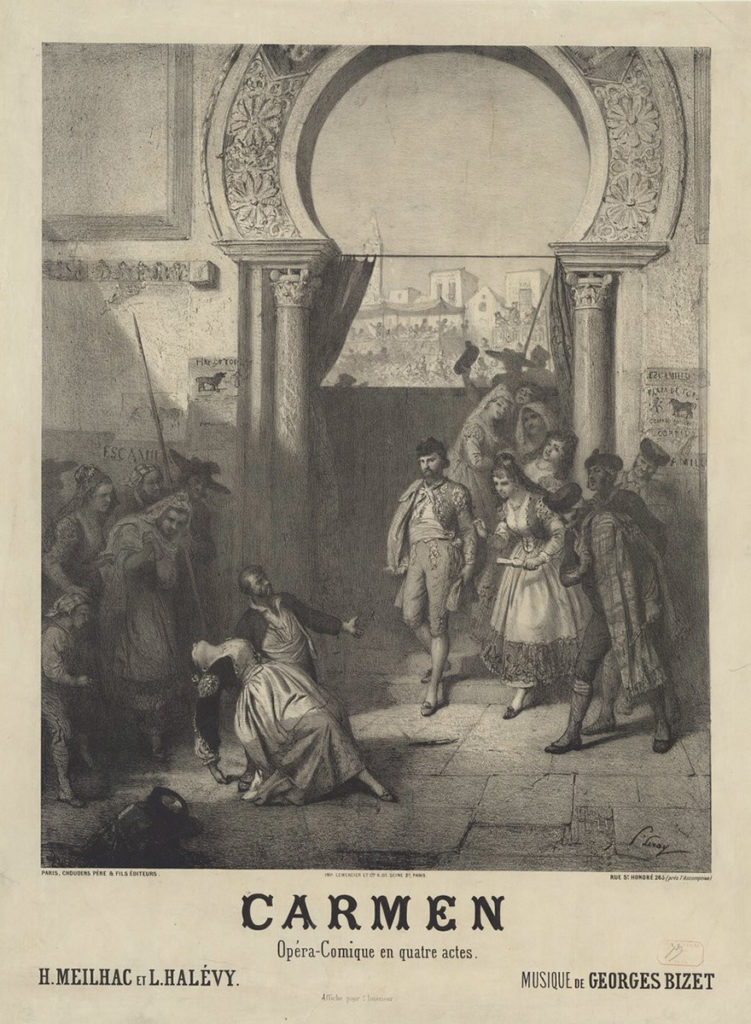
A show that caused a scandal
The reception was cold! More than the music, it was the theme of the show that scandalised. At the end of the 19th century, the behaviour of a free woman did not go down well and the critics were scathing:
It would be necessary (…) to gag her and put an end to her frantic hip thrusts, by locking her in a straitjacket after having refreshed her with a pot of water poured over her head” – Le siècle
Monsieur Bizet belongs to the school of the civet without hare.” – Le Gaulois
Faced with a flood of criticism, Bizet was very affected. That evening he took refuge in the office of the director of the Opéra-Comique and, in the days that followed, many people turned their backs on him.
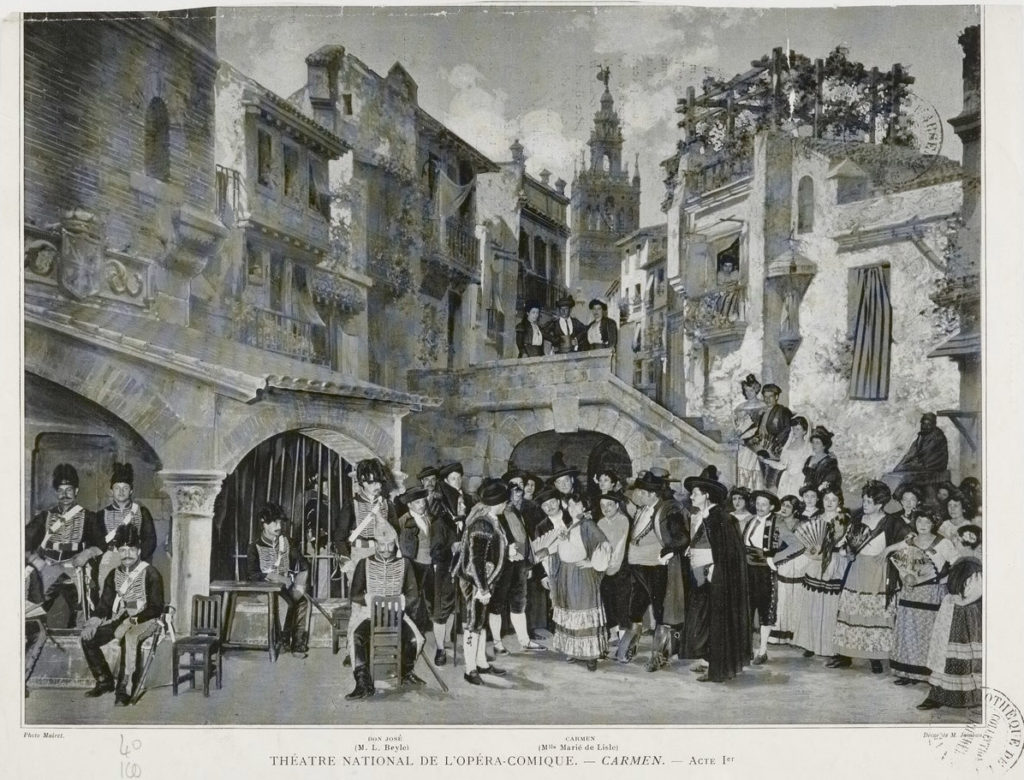
A late success that Bizet did not enjoy
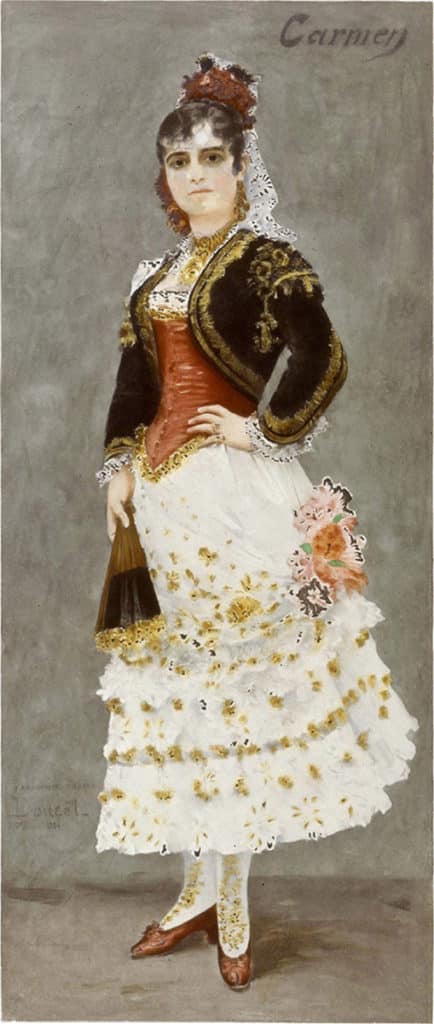
Despite these criticisms, Carmen was performed again a few years later without Bizet knowing anything about it, since he died shortly after the first performances, in June 1875, aged only 36. He was buried in Père Lachaise under a tomb designed by Charles Garnier, the famous architect of the Paris Opera.
The failure of the first performances was mainly due to the mores of the time, but Carmen finally met with success over time. As early as 1875, Tchaikovsky predicted that “Carmen will be the most famous opera in the world”. Today, it is one of the most performed comic operas in the world, with an average of almost two performances a day! And the greatest singers have played the role of Carmen, like the famous Maria Callas!
What is an “opéra-comique”?
Contrary to what its name might suggest, an “opéra-comique” is not necessarily comical or joyful! The origin of its name is quite different…
Under Louis XIV, the organisation of shows was very codified and the comedians were not happy with the success of the fairground theatres. They obtained from the king a ban on speaking on stage for these fairground troupes.
In order to continue performing, the fairground troupes invented a new kind of show halfway between opera and comedy, containing sung passages that were mixed with spoken ones, rather like a musical. The term ‘opéra-comique’ was coined in 1714 when Louis XIV allowed a fairground troupe to perform in the Opéra-Comique theatre in Paris.
Carmen, frozen for eternity at the Opéra-Comique in Paris
In Paris, in the Opéra-Comique theatre where the scandal was cried out in 1875, a sculpture of Carmen now stands and welcomes visitors. A fine mark of recognition!
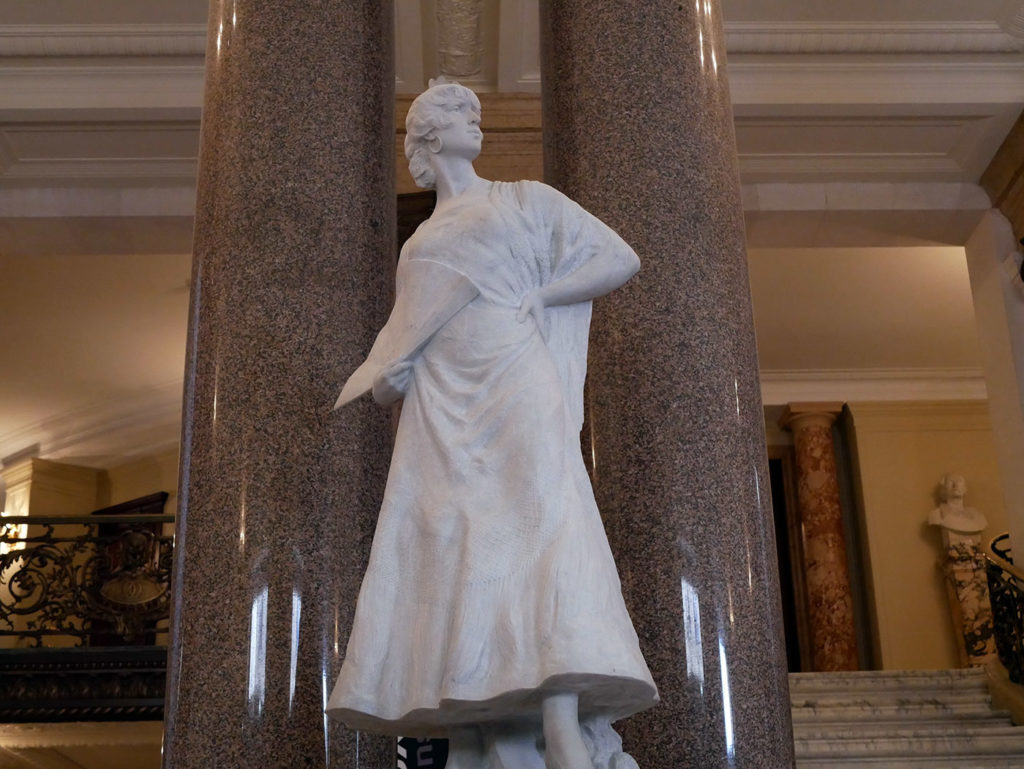
Learn to decipher Carmen in a discovery concert at La Seine Musicale
To discover the history of Carmen and to understand why this work became a real hit, La Seine Musicale in Boulogne Billancourt offers you “Do you find it classic?” a fun and relaxed 1h15 concert where the conductor Mathieu Herzog will give you the keys to understand Bizet’s work. See you on Saturday 19 March at 6pm:
If you think that classical music is not for you or that it is too uptight a genre, put aside your prejudices and let yourself be carried away by this educational concert offered at aperitif time to start the evening with friends or family.
For the occasion, Mathieu Herzog will be accompanied by his orchestra Appassionato, the mezzo-soprano Adèle Charvet, the soprano Jeanne Gérard, the tenor Sungho Kim and the students of the Académie Philippe Jaroussky.

Discover also the next date of “Do you think it’s classical? “21 May 2022: Bach – Glass
One is an 18th century composer, the other is a contemporary composer, living in the United States! So what is the connection between these two composers? Accompanied by the pianist Vanessa Wagner, Mathieu Herzog will show you the bridges that link the works of these two artists.
Article produced in partnership with La Seine Musicale

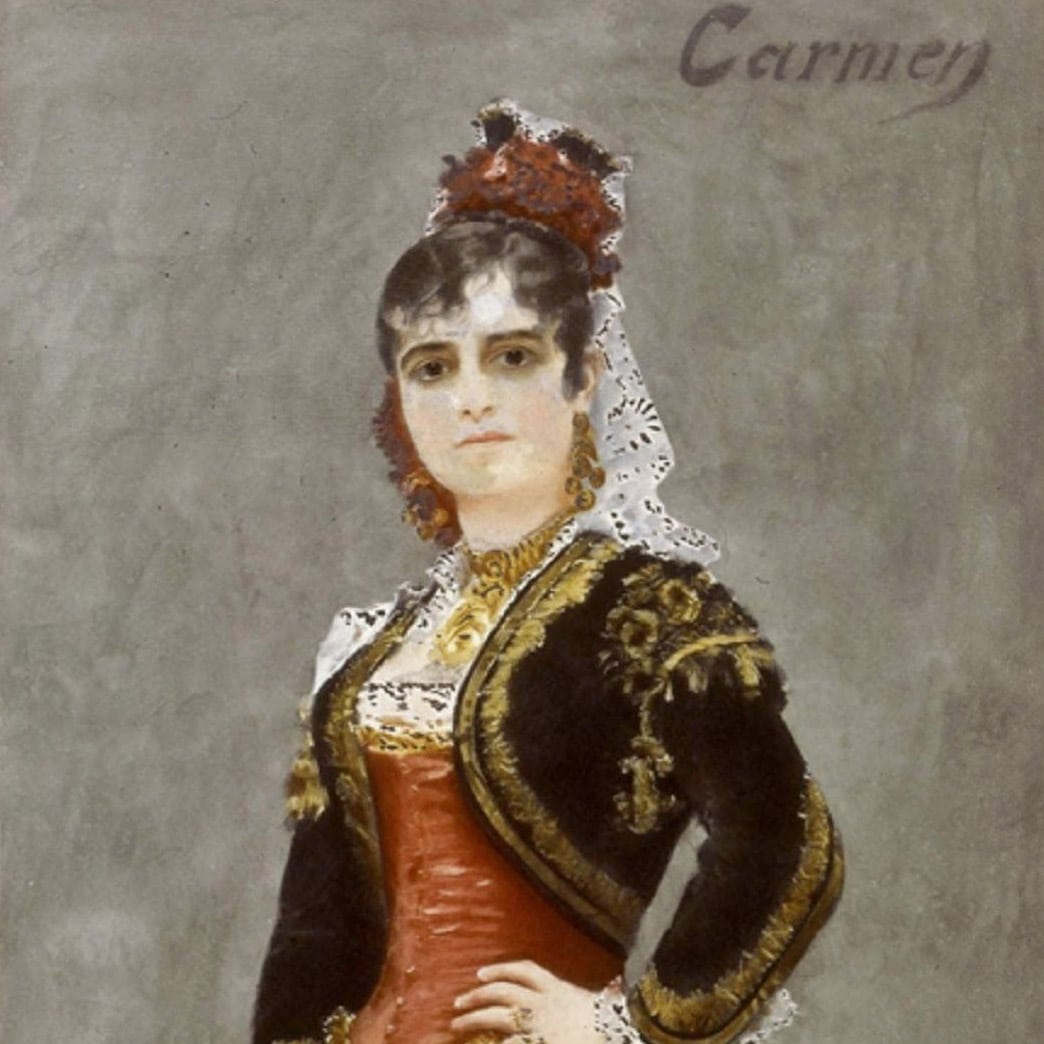



People reacted to this story.
Show comments Hide commentsInteresting history about the early beginnings of my favorite opera I last saw free at an outdoor venue in Redlands California USA
Off to see Carmen in Florence at end of March. Cannot wait.
The article was very informative